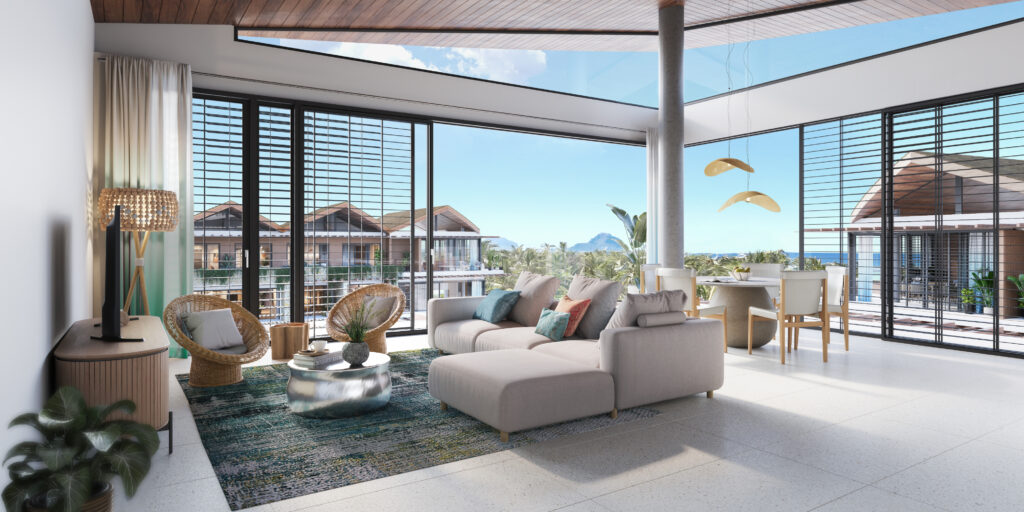Opinion-Editorial by Gareth Land of 2Futures, the leading property developer in Mauritius – in partnership with the Economic Development Board of Mauritius.
More and more South Africans are realising the growing value of offshore property investment. Whether it’s purchasing their forever-home as they emigrate, finding a future residential villa, securing a safe investment opportunity, or simply to use as part of their newest business venture, property investment is an important way to build an offshore wealth portfolio – and to purchase an asset that can last for generations.
In 2023, researchers at Stats SA released their Migration Report Profile for South Africa, showing that many of their countrymen are making their way across the world to seek new opportunities. The data shows that around 413 000 South Africans have emigrated since the dawn of the millennium, with many opting to move to the United Kingdom (the top destination), followed by Australia, the United States, New Zealand, and Canada.
However, when it comes to offshore property – which often goes hand-in-hand with emigration – reports of a new investment destination have been emerging over the past few years, especially from within the real estate sector. Many property companies and analysts, including 2Futures, had already noticed that an increasing number of South Africans are purchasing properties (residential and commercial) across Mauritius.
The Bank of Mauritius’ most recent investment Gross Direct Investment (GDI) report revealed that South Africans were second only to France in terms of overall GDI into the country. Similarly, it was reported South Africa was the second largest source of real estate of foreign direct investment in 2023, accounting for MUR 3.84 billion in funds.
So why Mauritius? We believe our buyer profiles provide us with some of the answers.
The South Africans Investing in Mauritius
Naturally, we have many types of clients looking for different property types, and they have varying reasons for investing in Mauritius. However, one common trend has been that many of them are already advanced in their careers, usually above the age of 40, and have the capability to perform hybrid-work, whether they are self-employed or working for a larger entity.
The personal reasons for moving to Mauritius are obvious: the social and political stability, island environment, and overall high standard of living. However, this is something offered by numerous locations around the world. While buying international property in other popular investment destinations like Spain, Cyprus, or Malta offers similar security, Mauritius is a short plane ride away from South Africa, meaning these new residents can easily return to their home country for work or to visit family and friends.
However, for many of our entrepreneurial-minded clients, the investment in Mauritius’ real estate sector is often due to the financial benefits. With no council tax, property tax, inheritance tax, or capital gains tax – and an estimated 5 – 7% return on rental investments – both property ownership and the high-return rental market remain highly attractive.
Securing residency permits has also become even simpler in recent years. According to the Economic Development Board of Mauritius (EDB): “A non-citizen investing in a luxurious residential property in a project under the regulated schemes, for a price of not less than USD 375,000 is eligible to get a residence permit for self and dependents. The residence permit exempts the main applicant from a work permit/ occupation permit to work or engage in gainful activities in Mauritius.”
The Future Residents and Entrepreneurs of Mauritius
Meanwhile, it has widely been reported that Mauritius is aiming to become a regional tech, fintech, and healthcare hub. In January this year, the World Bank’s Global Innovation Index revealed Mauritius as Africa’s most innovative country – all while having the most favourable business climate on the continent. From an economic perspective, the country has already forged a strong reputation as an International Financial Centre, likely due to its role in facilitating cross-border investments in emerging economies. It is likely this push to diversify Mauritius’ multi-sectoral capabilities that is attracting these higher income investors – including those opting to purchase luxury accommodation and secure their residency.
However, our own experience in the local property market has shown that offshore real estate investment is not limited to the highest income brackets. We have seen an increasing demand for studio, 1-bedroom apartments over the last two years. Investors focusing on rental returns prefer smaller units and purchase multiples if their budget allows. For example, the Black River and Grand Baie regions are attracting both commercial and residential investors at every phase of development. This includes properties connected directly to nearby hotels, which then receive their respective hotel services and access to their facilities.
Regardless of the type of property being purchased, it’s clear as to why many investors – including the growing number from South Africa – are looking to Mauritius for growth. It’s a location intrinsically attached to Africa, the headquarters of the some of the region’s fastest growing business sectors, and of course, filled with natural wonders.
